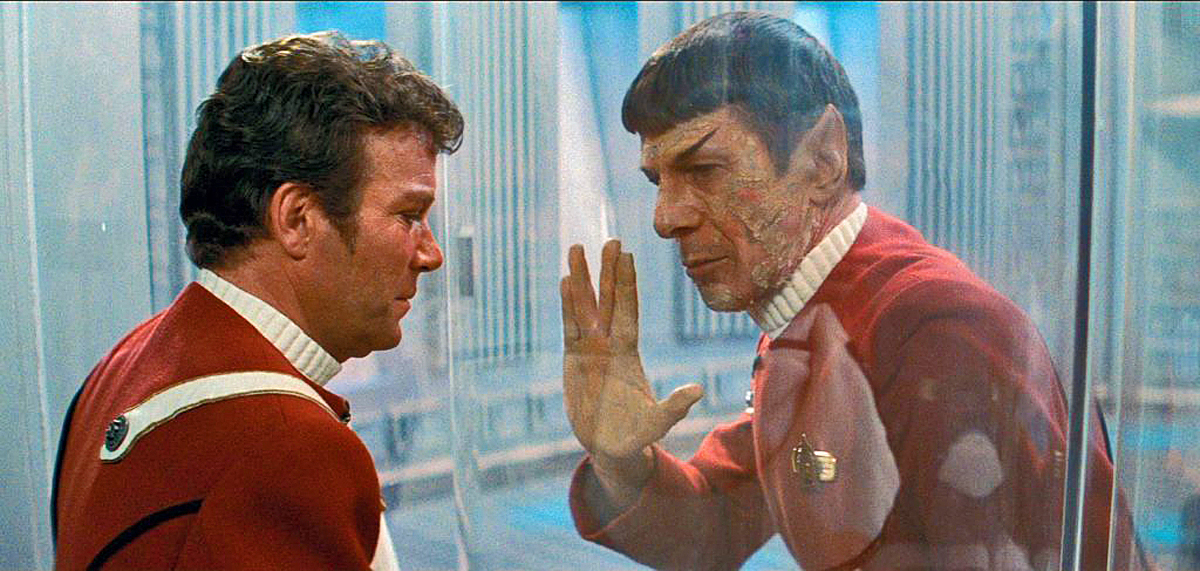In Nacho Libre, that comedic triumph from 2006, Jack Black portrays a Catholic friar who spends his days cooking for the residents of a Mexican orphanage and his nights in the ring as a luchador. Early in the film, an emaciated street thief named Steven mugs Nacho; after the two battle each other, the friar recruits his attacker as a tag-team partner. Steven adopts the fitting moniker “Esqueleto” (“Skeleton”).
There is a problem, however. Esqueleto has never received baptism, deeply scandalizing his devout partner. “I don’t believe in God,” Steven proclaims with evident disdain, “I believe in Science.” His devotion to Science does not preclude him from suggesting various folk remedies to their lack of success in the ring (e.g., magic eagle eggs), but Nacho suspects that his comrade’s unbelief is really to blame. In a theologically dubious — but hilarious — move, Nacho forcibly baptizes Esqueleto before one of their matches. Esqueleto’s conversion, unsolicited as it was, appears genuine enough; later, when their fearsome final opponent strolls into the ring, it is the former devotee of Science who suggests praying to the Lord for help.

Although he demonstrates no familiarity with any scientific learning at any point in the film, (pre-baptized) Esqueleto nevertheless appears guilty of espousing “scientism.” Usually a pejorative label, scientism in its strongest form is the notion that scientific methods are the only genuine path to knowledge. More commonly, it refers to the attitude that confidence in our truth claims is, or should be, proportional to their scientific rigor. The further we move from statements that can be investigated by the hard sciences, the squishier our language becomes, and the less certain we can be that we are saying anything meaningful. Any talk about the fundamental nature of reality, or the meaning of life, or God, should be treated with extra suspicion.
This anti-metaphysical bent has probably been around forever, but it gets particularly sharp (and famous) expression in the philosophical movement known as Logical Positivism, which originated in the 1920’s. As is the case with any philosophical school, there was much variation and disagreement amongst its adherents about the particulars, but the Positivists’ main idea was that any meaningful statement is either a truth of logic or else empirically verifiable (at least in principle). The consequences of such a view are profound. All the venerable old propositions about God, the meaning of life, the immortality of the soul, the nature of universals — in short, any statement that purports to deal with the metaphysical — is not so much false as it is meaningless. From a cognitive standpoint, these propositions fail to say anything.
By 1960, Logical Positivism had run aground on technical issues regarding what, exactly, counts as “verification” or “confirmation.” Long before, the movement had suffered repudiation from the enigmatic Ludwig Wittgenstein, whose 1921 Tractatus Logico-Philosophicus had served as a major source of inspiration for the movement. Wittgenstein’s book, which he began writing as a soldier in the Austrian army during World War I, is widely regarded as a landmark in philosophy, and even more widely regarded as hard to understand. Very simply, the Tractatus seeks to draw an indelible line between what can and cannot be meaningfully said by human language.
For Wittgenstein, words in isolation are meaningless. I succeed in saying nothing if I walk into a room full of people and simply utter, “cat.” Only words in combination with other words express meaning (e.g., “There is a cat over there,” or “cat” as an answer to a previous question). Given the nature of our language, then, we cannot speak of things in isolation, but only of things in relation to other things.
Or, to use Wittgenstein’s own terminology, the basic (meaningful) unit of our language is the proposition, which is a “picture” or model of reality. The model contains the same logical relationship between its various components as that which it models. Now, for Wittgenstein, we can only picture or model states of affairs in the world. He then explicitly identifies the totality of all true propositions with the corpus of the natural sciences, implying that we can properly speak only of what is amenable to scientific investigation. We simply cannot model what lies beyond experience — therefore, judgments of ethical or aesthetic value, metaphysical conjectures, theological statements, and the like — do not picture any states of affairs in the world and are therefore nonsense. They do not and cannot mean anything.

Strangely enough, however, Wittgenstein himself was deeply attracted to religious and ethical values, which he terms “the Mystical” in the Tractatus. After finishing the book, he seriously considered becoming a monk, and throughout his life he held himself to rigorous ethical and aesthetic standards. The “Mystical,” in fact, was of utmost importance to him. At this point in his life, however, he believed the logic of human language precluded it from speaking about metaphysics in any significant way.
Wittgenstein’s mystical impulse to cleanse language of metaphysics is reminiscent of Laozi’s famous dictum at the beginning of the Tao Te Ching: “The Tao that can be told is not the eternal Tao.”[1] It also bears some resemblance to the apophatic tradition in Christianity. Apophatic theology focuses on gaining knowledge of God by carefully describing what we cannot say about Him.[2] It’s also an impulse I can understand. On the one hand, I’m unimpressed by the idea that Science can cleanly replace religion (or philosophy) as some kind of guide to life. With Wittgenstein, I “feel that even if all possible scientific questions were answered, the problems of life have still not been touched at all.” On the other hand, it feels presumptuous to the point of comedy for tiny, often-befuddled creatures like us (who have never been outside the orbit of our planet) to imagine that our language has any purchase on ultimate Reality. Perhaps our best recourse is to follow Wittgenstein’s example and strive to lead lives that are beautiful and true while remaining silent on Beauty and Truth, lest we cheapen these things with our chattering.
And yet we cannot, it seems, remain content to dwell in silence on the nature of reality and our place within it. I think Kant was right when he said that metaphysical questions are unavoidable, as they arise from the very nature of human reason. Wittgenstein himself acknowledges forthrightly that the Tractatus makes non-verifiable statements when it deals with the nature of logic; in startling fashion, at the end of the book he announces that the Tractatus is itself senseless and should be disposed of, like one kicks away a ladder after scaling a wall.

It seems that even Wittgenstein must talk about what lies beyond the world, even if he knows that he cannot. At the end of Star Trek: The Wrath of Khan, Spock, that other paragon of hardnosed logical analysis, sacrifices himself to save the rest of the Enterprise’s crew. As he dies from radiation poisoning, he tells Kirk, “Don’t grieve, Admiral. It’s only logical. The needs of the many outweigh …”
“The needs of the few,” Kirk finishes.
“Or the one,” replies Spock.
This is, of course, sheer nonsense. There is no use in saying that sacrificing oneself to save others is any more “logical” than sacrificing others to save oneself. Spock isn’t a bit logical. He’s quintessentially “human,” as Kirk will eulogize him shortly afterwards. Which is to say that he imports, wholesale, unproven and unprovable metaphysical assumptions just like we all do. He cannot bridge the gap between the “is” and the “ought” any more than we can. Nor can he resist the urge to do so.
***
“The Tao that can be told is not the eternal Tao.” We know this, and we know we cannot help ourselves from trying to tell it. But what if the eternal Tao were to tell itself, so to speak? The early Christians insisted that the Logos, the organizing and guiding principle of reality, had become flesh and dwelt among us. In doing so, perhaps they uttered nonsense (by any account), the category error of all category errors. Perhaps they even blasphemed. On the other hand, how can we speak meaningfully of the Ineffable if He does not speak first? And even if He does speak, how can we hear Him aright through the medium of our language, which seems pulled by a sort of gravity back to this world and the things in it?
But we know we can talk about a Man. If, at the same time, our statements about this particular Man can also (somehow) be statements about God, then there is reason to think that we can speak meaningfully about God. Spelling out how this might work is no easy task, but neither is it hopeless. The incarnation enables us to say that God is just and merciful, for instance, while defining “justice” and “mercy” in ways that are not only coherent and compelling, but life-changing. Through the life, ministry, and especially the death and resurrection of Jesus Christ, God provides abundantly more than empirically verifiable truth.
It’s risky to think this way. It’s also risky to allow oneself to speak only of things amenable to scientific validation. On the one hand, we could be uttering sheer nonsense, or worse. On the other hand, we could be cutting ourselves off from what it means to be human.

COMMENTS
One response to ““I Don’t Believe in God. I Believe in Science””
Leave a Reply













David, I love this. Wittgenstein provokes so much reflection if we give him the time to upset our ready-at-hand beliefs and definitions and I almost count him a spiritual uncle for it. The way he never could quite live with his programmatic statements shows, I think, the real, substantive power of his thought, but also their shortcomings as law with inadequate grace. Thank you for this!